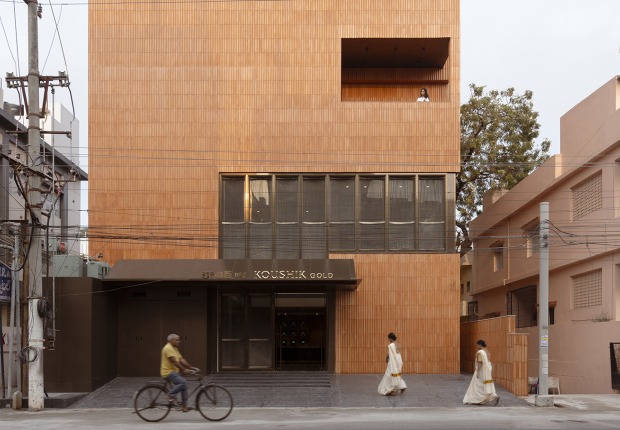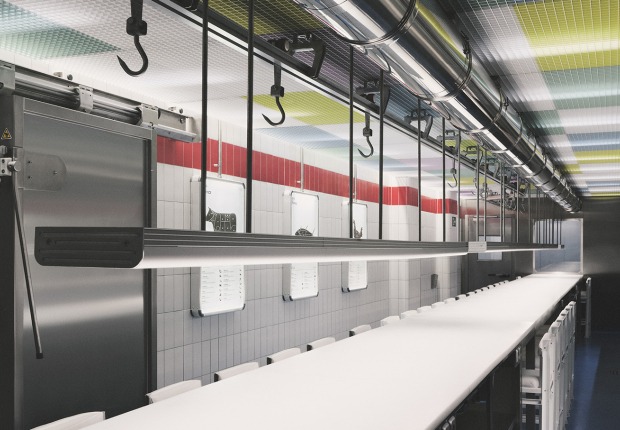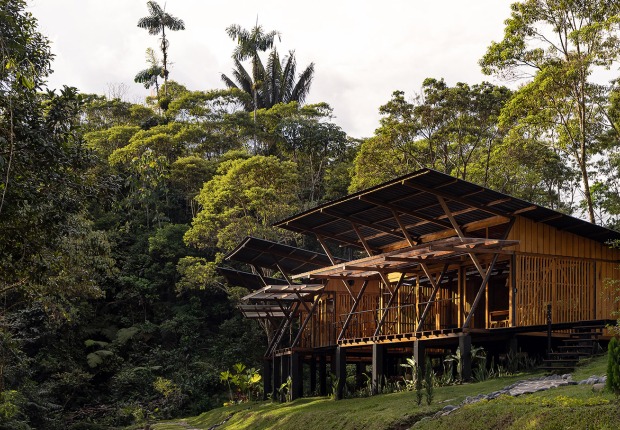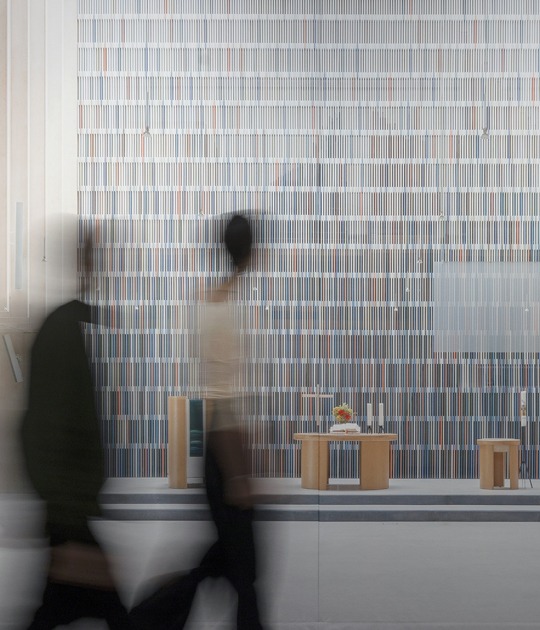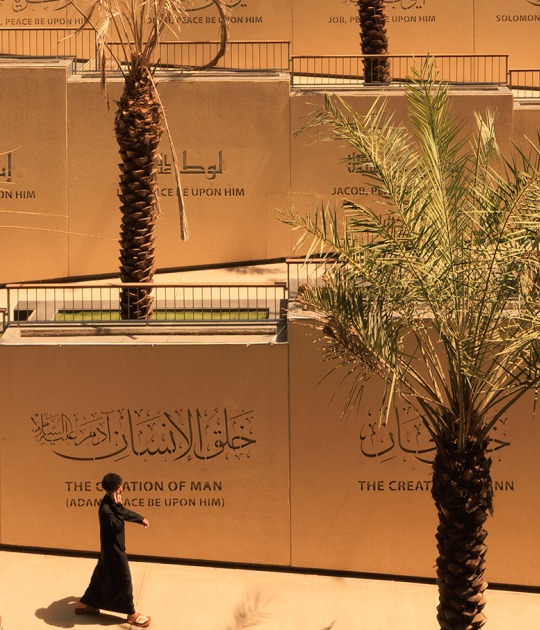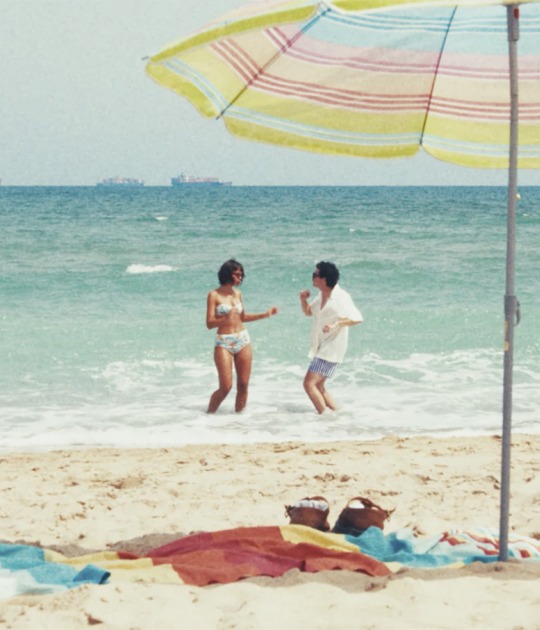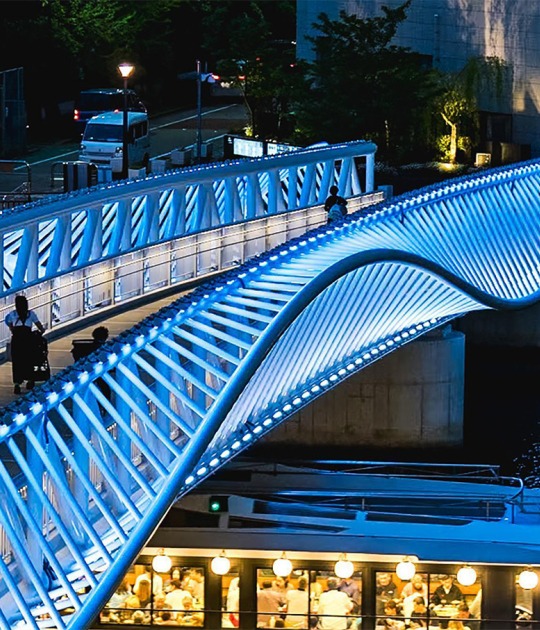
In 2021, the local government and Librairie Avant-Garde invited Trace Architecture Office (TAO) to repair and renovate Chongzheng Academy, transforming it into a bookstore with comprehensive functions including a bookstore, exhibition areas, reading rooms, a small theater, cafe, etc.
TAO proposes a limited intervention in which a large part of the original structure is incorporated, incorporating into the new project the historic walls and details of the wooden structure, as well as the existing trees in the courtyard, trying to preserve and respect the history of the local area and the general natural landscape.
Two floating book galleries, made of steel, are introduced into the courtyards, which are placed along the east-west axis to connect the originally dispersed functional areas of the academy, which in turn generates a tribune for an open-air theatre. To recover the identity of the complex, the project replaces two administrative buildings from the 1980s located on the east side, with a raised concrete volume where the theatre-auditorium is located and a large window to the street is created from which the books are seen to show a vigorous cultural perspective, inviting one to enter the Academy.

Weishan Chongzheng Academy Bookstore of Librairie Avant-Garde by Trace Architecture Office (TAO). Photograph by Arch-Exist.

Weishan Chongzheng Academy Bookstore of Librairie Avant-Garde by Trace Architecture Office (TAO). Photograph by Arch-Exist.
Project description by Trace Architecture Office (TAO)
Weishan Chongzheng Academy Bookstore of Librairie Avant-Garde is located in the west corner of Weishan Ancient Town in Dali, Yunnan. Weishan is the birthplace of the ancient Nanzhao Kingdom and has a history of over 600 years. It still preserves the urban layout of the Ming and Qing dynasties. Chongzheng Academy was built during the Hongzhi period of the Ming Dynasty with a history of more than 500 years and has gone through several twists and turns. In 2021, TAO was invited by the local government and Librairie Avant-Garde to repair and renovate Chongzheng Academy, transforming it into a bookstore with comprehensive functions including bookstore, exhibition, small theatre, coffee, etc. and hoping to awaken the former prosperity and vitality of the place. The design task also includes the urban design of the surrounding area. By inviting new programs, the design aims to create a new lifestyle destination that encourages everyday public participation throughout the year, bringing a positive effect to the regeneration of the old town.
Urban design
Many local people spent their childhood in Chongzheng Academy. The 330-year-old Banyan tree in front of the south gate of the academy is the largest tree in the town, where people used to relax, play, and organize a band under the tree when they were young. Compared with the ancient academy and tree, there is also a relatively ‘young’ abandoned building on the site, which was an iron factory in the 1960s, and the wooden structure is well-preserved.
In terms of location, the site is located between the ancient town and the new town, with convenient transportation and increasingly complete surrounding service facilities. It is an excellent location to introduce fresh blood and activate the whole area. The goal of the renewal is to use the Librairie Avant-Garde as the catalyst to introduce new business forms, creating a lifestyle cluster with diversified spaces including cultural innovation, café, bars, public art, open markets, etc., and connecting the surroundings though the urban vitality network.

At this critical time-space node connecting nostalgia and the future, the intervention must be linked to tradition and memory. Therefore, the protection and organic renewal of the existing three elements on the site mentioned above are of paramount importance in urban design. Chongzheng Academy and the iron factory remain intact, while a new tree pond is designed for the ancient tree. Also, an outdoor sunken courtyard is created against the tree and academy, activating interaction between people and the tree. With the giant tree as the visual center, the slightly rotated city square becomes the focal point of the urban space, which connects the east and west sides of the streets and encourages spontaneous public activities, providing diverse outdoor urban life options for everyone. An "urban community under the framework" is created around the square, where the continuously folded sloping roof grows on the basis of the old factory roof. The design extends the urban texture and architectural image of the Weishan ancient town, while on the other hand, it differs from the original buildings in physical appearance. The internal space meets the needs of both traditional and new business formats for spatial quality and scale, in hope of creating a symbiotic integration of new and old buildings, tourists and indigenous culture, diversified functions and lifestyles.

Chongzheng Academy / Librairie Avant-Garde
The Librairie Avant-Garde and Chongzheng Academy are connected by books. Chongzheng Academy was one of the first academies in the history of Yunnan. At its inception, it boasted the most extensive collection of books in the region. In ancient times, governor HU Guang transported books from Jiangnan to Menghua (the ancient name of Weishan) for enlightenment and education. Similarly, the Librairie Avant-Grade settled in Yunnan from Jiangsu, bringing books from thousands of miles away and spread the aroma of literary to various places. The connection is not happenstance, it embodies a similar spirit of cultural dissemination, with books as the medium but not limited to them. Records indicate the presence of the Guanwen Tower in ancient times, which was used for book storage but has since disappeared. Given this past glory, the Librairie Avant-Grade also hopes for Weishan Chongzheng Academy Bookstore of Librairie Avant-Grade to regain its former "wealth of books" and become the branch with the largest collection among all Librairie Avant-Grade bookstores. Therefore, the presentation of books within the academy and how to revive its spirit are the top priorities of the design.
Applying a limited intervention and low impact design strategy, the design maintains the original spatial atmosphere and existing trees in the courtyard, maximize the preservation of historical walls and wooden structure details to the largest extent, demonstrating great respect for the history of the local area and the overall natural landscape. The design consists of following elements: two floating Book Galleries that are placed along the east-west axis to connect the originally scattered functional areas of the academy, while giving more rhythmic transitions between the internal and external spaces; an outdoor theatre and recreation courtyard that are enclosed by grandstands and trees on both sides; the addition part on the easternmost side create a featured interactive window of book that faces the city streets, revealing a vigorous cultural and spiritual outlook of the academy.

Book Gallery and outdoor theatre
The Book Gallery is a celebration of books. The design places two 29-meter-long steel-framed book corridors on both sides of the central axis courtyard. The functions of book storage and reading are highly condensed into the scale of the structure and run through the east and west courtyards. Looking from the plan, a diagonal line divides the Book Gallery into two parts: the inner space becomes narrower towards the east, and finally condenses into a visual focus in the distance. Such a non-parallel layout enhances the sense of perspective and depth of the internal space as if walking in the "spiritual tunnel" of the book, forming a completely different spatial experience from the surrounding historic buildings.

The stepped volume at outer side of the Book Gallery becomes the cultural and creative exhibition stands in the passage hall and the grandstands in the courtyard. An outdoor theatre under the trees, which is defined by the grandstands on both sides of the courtyard, provides a space for reading, communication, leisure and hosting outdoor cultural activities. Sitting high on the steps also provides people with a unique perspective overlooking the academy. Although the Book Gallery is symmetrically arranged along the axis, the space of the central courtyard gradually enlarges from west to east due to the two diagonal cuttings. It adheres to and strengthens the ancient Chongzheng Academy's east-facing orientation, responding to the academy's name of "celebrating upright and integrity". At the same time, it also creates two different perspective experiences of looking at the east and the west of the Book Gallery.
The design of the Book Gallery not only re-divides the internal spatial pattern of the academy, but also re-connectes the different courtyards, main hall, wing rooms and side rooms. On rainy days, guests can also conveniently walk freely between the west hall and the passage hall, and between café and reading spaces. Due to the excellent temperature conditions of Weishan, where spring stays all year around, there is no closed climate border in the academy, blurring indoor and outdoor and maximizing openness and continuity between roofed and open-air areas. Walking in the academy, shuttling between the Book Galleries and historic buildings, the scenery is changing with every step forward. It is like visiting a Chinese garden with rich spatial experiences and traveling through ancient and modern times.
The construction of the Book Gallery follows the principle of reversibility and is built up with lightweight steel structure. Columns are only dropped in the courtyard and cantilevered above the ground of passage hall of the historic building. All the ancient trees in the courtyards are preserved. The ancient trees are intertwined with Book Galleries, making the trees a unique landscape introduced into the internal space.

Addition part-urban interface and nested space
The addition on the easternmost side of the academy is the climax of the entire central axis space. Located at the end of the east-west axis, this is both the end of the spatial sequence and the beginning of the connection of the city towards the street. Traditional academy is introverted in nature, and the internal events cannot be detected from the outside. However, the new bookstore needs to establish a connection with the city, provide a window to showcase and attract tourists. As the interface of the academy facing the city streets, the addition part becomes the only opportunity to create an extroverted space. Therefore, it is a very important node connecting the interior of the building with the city.

Taking into consideration of the relationship between the floor level and the street, as well as the program, the design divides the space into upper and lower parts in the section. The upper part is an indoor theatre, which is also the largest activity space in the building. Following the steps of the theatre, one can reach the viewing platform on the second floor overlooking the entire town. The lower part is a semi-sunken display area for books, which can be reached through steps and ramps on both sides. The sunken area is largely constructed with glass façades, allowing visual connection and interaction between the building and the city. People passing by on the street can see the colorful book display and space design in the store at a glance, which becomes the book display window and the activity stage for people. The action of sinking not only makes the space rich in variety, but also follows the real geological evolution in the Ming Dynasty, the horizon was significantly lower than in modern times. "Architecture is about the relationship between the earth and time." In such an academy built in the Ming Dynasty, the design pays tribute to time with a humble attitude.
The addition is closely connected with the old building. What kind of architectural form and attitude the new building adopts to deal with the relationship between the old and the new and to create the urban image of the academy is also a very important and sensitive proposition. Many design schemes have been tried during the design process. In order to balance the relationship between the contemporary nature of the new design and the traditional architectural style of the historic buildings, the concept of "pavilion within a pavilion" is adopted in the final design. The inner pavilion uses an upward-opening cylindrical shape to accommodate the indoor theatre space, while the external pavilion adopts a traditional herringbone pitched roof, which is connected with the gable tile roof of the historic building to form a continuous and harmonious architectural outline. The dual form of pavilion nested to each other and forms unique in-between spaces, enriching the visual relationship and spatial tension inside the building.

The inner pavilion becomes enlarged from bottom to top, forming a horseshoe-shaped theatre inside. The external pavilion is wrapped in a traditional gabbled roof form, with wooden rafters and tile surfaces, that responds to the overall architectural image of the ancient town. Structurally, the traditional roof is supported by the wood-grained concrete walls and steel beams of the inner pavilion, forming a visual reversal of force as if floating in mid-air. In fact, the main load-bearing component of the second-story gable wall is the wall-beam extending from the shear wall. It supports the cantilevered viewing platform with extremely large beam depth and long span, together with the concrete oblique column, they form an integral structural system.
Externally, the floating gabbled roof is similar in size to the main hall, with two flat roofs growing on both sides, which are the same height as the main hall's wing rooms, and enclose the two wing courtyards. In this way, the external physical rhythm and plan layout of the addition align with the historic building form and courtyard layout respectively. In terms of materiality, except for the roof construction, all the addition parts are made of steel-concrete structure. The gray color of the exposed fair-faced wood-grained concrete is similar to that of the historic building walls. The concrete texture is composed of 6-centimeter-wide Mongolian Scots pine boards arranged in staggered seams, the small-scale wood texture gives people a gentle and intimate feeling, softening the hard and cold impression of concrete itself.
It took more than two years from design to construction, and Weishan Chongzheng Academy Bookstore of Librairie Avant-Garde officially opened at the end of 2023. We are delighted to see that the 500-year-old historical building has re-intervened in urban life after undergoing renovation and renewal, and has become Weishan's new urban IP and destination. The bookstore attracts people from different places every day, and the tree pond under the big banyan tree as well as the mirror pool in the square are also popular places of locals. Since its opening, the bookstore has held many poetry, literature, music events, and exhibitions. In this sense, the ancient academy, which once carried the significance of cultural enlightenment, is like a phoenix reborn from the nirvana and will continue to write the future for the culture and daily life of Weishan.
























































